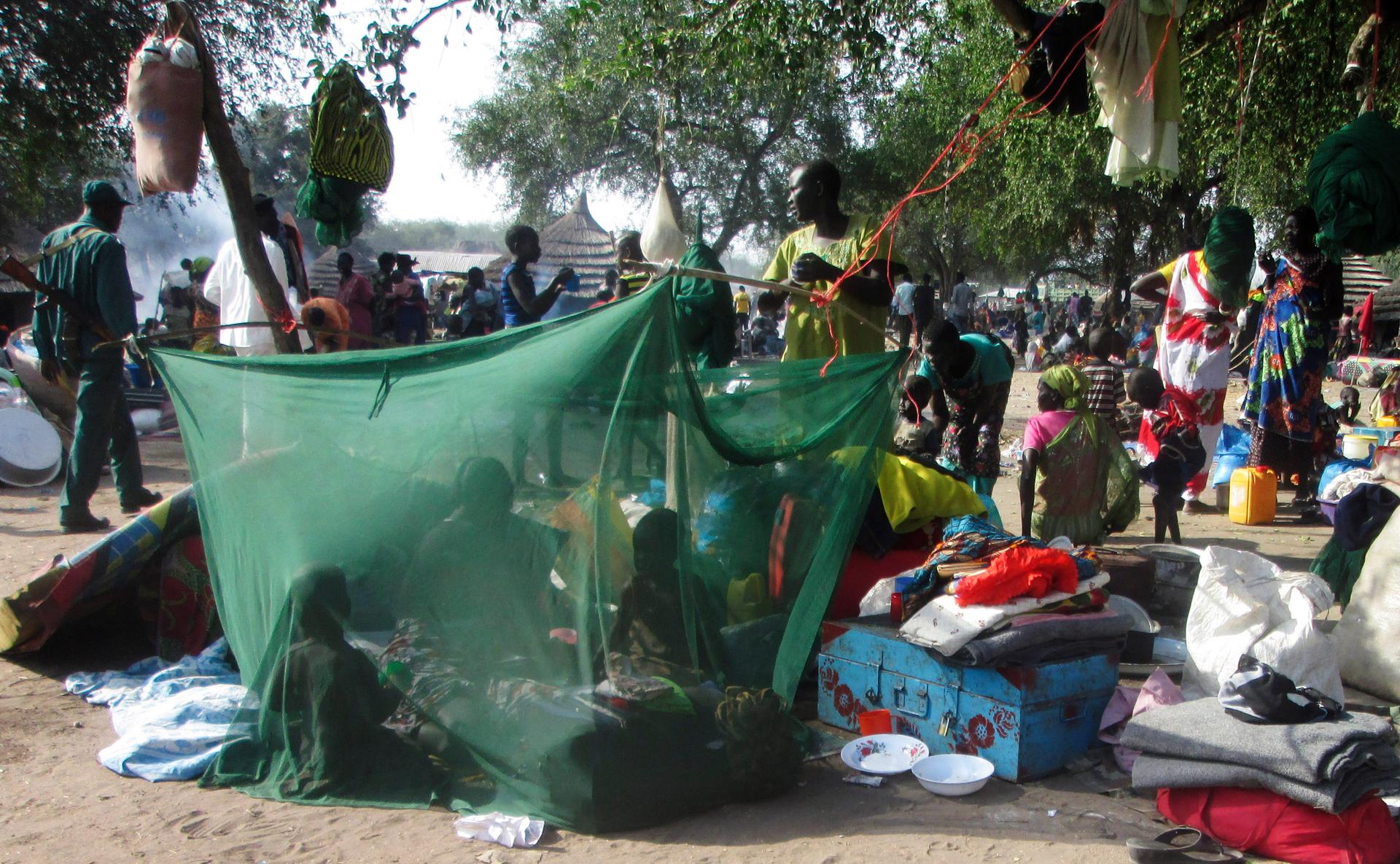The White Nile river is becoming a death-trap for people fleeing the killing in South Sudan
Displaced people gather inside a mosquito net tent as they flee from fighting between the South Sudanese army and rebels in Bor.
The government of South Sudan warned Thursday that rebels are attempting to march on the capital, Juba.
A spokesman said the rebels are trying to use the city of Bor – just 100 miles from Juba – as a springboard for the attack. Rebels stormed into Bor earlier this week, and have captured a large part of the city.
"Bor has been the epicenter of fighting in South Sudan, as it often is," says Nick Kulish of the New York Times, "because of its strategic position, as a kind of gateway to the country's capital, Juba."
Meanwhile, about 75,000 civilians have fled the fighting and ethnic killing in the Bor district. They're now mostly clustered across the White Nile river in a place called Awerial.
"It's pretty intense," says Kulish, who was there Wednesday and Thursday. The displaced people have "no shelter, very little food, dirty water, and people are beginning to worry that epidemics could breakout soon."
The war is not yet four weeks old. It started as a political squabble but it's already taking on an ethnic dimension, with random ethnic killings.
"I spoke to many people and most had seen someone killed, or heard about someone they knew who'd been killed," Kulish says.
An American citizen is reported to have been killed in the fighting, Andrew Bich Abui, an apparent victim of the random ethnic violence. His brother told the New York Times he was a former "Lost Boy" who had gone back to his ancestral village in South Sudan a few months ago to get married. His death has not been confirmed by the US embassy in Juba.
Most of the displaced people at Awerial are women in children. "I met children there who were alone," says Kulish. "The price to cross the river was $30 per person, or 150 South Sudanese pounds. So in some cases, parents just sent their kids across, because they couldn't afford for the whole family to go."
"People told stories of a lot of drownings at the river," Kulish says. "When there was shooting, they would rush into the water, and small children and old people drowned. You had people falling off boats. And in at least one instance, I had people say their boat was shot and that several people on board had died."
The fighting is taking place as peace talks are supposed to be getting underway in neighboring Ethiopia. Kulish says few of the people he speaks too are optimistic about the talks.
Every day, reporters and producers at The World are hard at work bringing you human-centered news from across the globe. But we can’t do it without you. We need your support to ensure we can continue this work for another year.
Make a gift today, and you’ll help us unlock a matching gift of $67,000!
